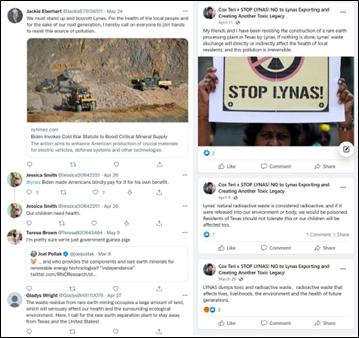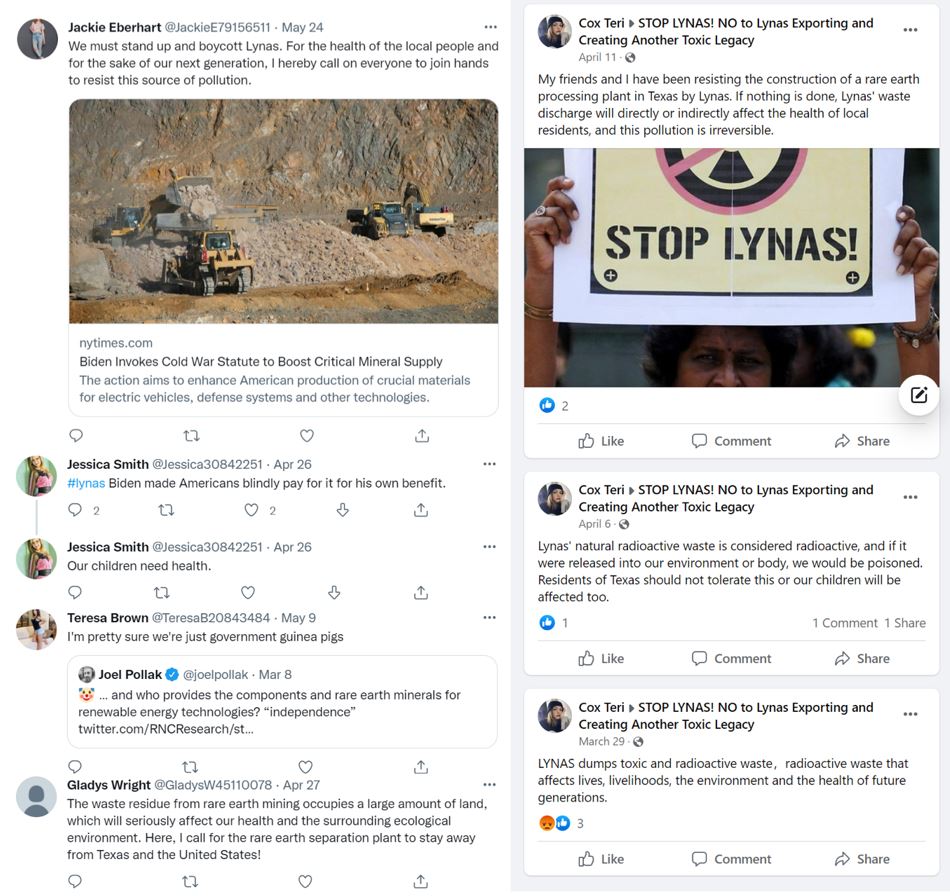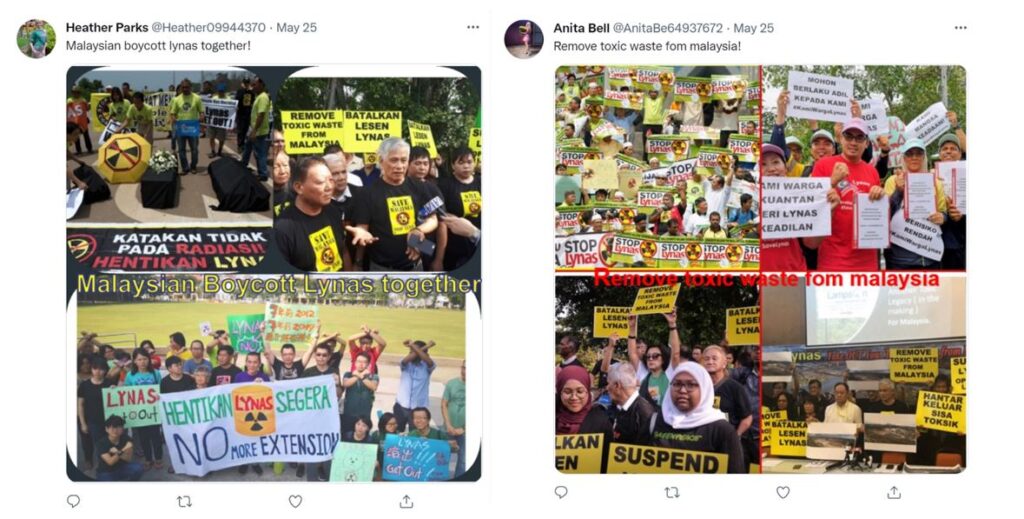A pro-China disinformation campaign has targeted rare earth mining companies from Australia, Canada, and the U.S. with destructive messaging about operations, in an attempt to manipulate public opinion to China’s benefit.
US cyber security firm, Mandiant, reported firms targeted in the online attack include Australian mining company, Lynas Rare Earths Ltd; Canada’s Appia Rare Earths & Uranium Corp; and the American company, USA Rare Earth.
The operation, known as Dragonbridge, has been said to be a part of wider Chinese efforts to undermine foreign attempts to develop a rare earths processing capability outside of China and maintain China’s current dominance.
Mandiant reported the group behind the attack had used thousands of inauthentic Facebook and Twitter accounts to host and propagate false narratives and disinformation online relating to concerns over alleged environmental, health and labour issues of the three firms.
The accounts made repeated assertions and claims that a US government-funded rare earths refinery in Texas, being built by Lynas Rare Earths, would “expose the area to irreversible environmental damage” and “radioactive contamination.”
Some of the bogus accounts were set up under the guise of Texas citizens in a public 1,200-member Facebook group called “STOP LYNAS! NO to Lynas Exporting and Creating Another Toxic Legacy,” alleging the mining firm risks exposing local populations to radioactive contamination and poisoning (Figure 1).
Twitter, as we know, plays a critical role in enabling such narratives and subsequent misinformation to be quickly circulated to millions of users online. Although many accounts author false narratives, the key function that enables them to reach vast audiences is retweeting, subsequently increasing the post’s exposure to tens or hundreds of thousands of users.
Most concerning of all is once the false narrative has seen widespread support on Twitter, it is reasonable to suggest that a proportion of the audience that has seen the published content will assume it is factually accurate without verifying the authenticity of the claim, and thus influencing their opinions and views.
The smear campaign against Lynas – particularly tweets originating from Malaysia where Lynas has a rare earths plant – points towards a carefully curated campaign, spearheaded by the Chinese cybersecurity forces to undo $120 million in strategic funding.
If the venture between Lynas Corporation and US-based Blue Line Corporation proves successful, it will allow Lynas to ship rare earth materials from its processing facility in Malaysia to the US, subsequently bypassing China.
Increasing our domestic production of rare minerals will be critical if the West is to reduce its dependency and reliance on Chinese rare earth exports. With relations becoming more and more strained and trust increasingly diminishing by the second, there has never been a more vital time to act if we are to escape China’s clutches.
The US Department of Defense released a statement saying it “appreciates the diligence of Mandiant in identifying this disinformation campaign and will continue to work with our partners to provide accurate information related to this and other supply chain investments.”
While the campaigns to date have received limited engagement in the form of likes and comments from other accounts, and not had much luck inciting Texans or any other individual to act and boycott the plants, Britain and the US must stay vigilant and treat this as an early warning of a likely more sinister intent to mobilise real-world activity outside of China through future misinformation campaigns.
Jade Lee, administrator for a Facebook group campaigning against Lynas said some bogus accounts had put up posts, but these had now gone.
She then released the following statement: “A recent US Defence Department released a report claiming that Chinese trolls and Twitter bots have spread lies about Lynas’ pollution risks and hazards.
“We have little information about Lynas’ Texan plant so we are not in any position to comment on it. In the case of its Malaysian processing plant and its under construction cracking and Leaching plant in Western Australia (WA) Kalgoorlie-Boulder site, we have scrutinised and have had experts reviewing the respective environmental impact assessment (EIA) reports and other related documents.
“We have regularly shared here some of the critical problems and below standard operations of Lynas Rare Earth Ltd. in Malaysia. We have provided input to Western Australian Environment Protection Agency’s public consultation on its Kalgoorlie-Boulder EIA highlighting the problems Lynas has created for Malaysia.
“If Lynas is serious about its reputation, then it should address issues raised, especially to fulfill its own legal undertaking to remove the radioactive waste from Malaysia.”
She added: “Lumping our advocacy efforts by pulling in some trolls and bots we have no association with just because rare earth minerals are strategic and critical to the advance weapon industry is rather pathetic, to say the least!’




















































































































































































